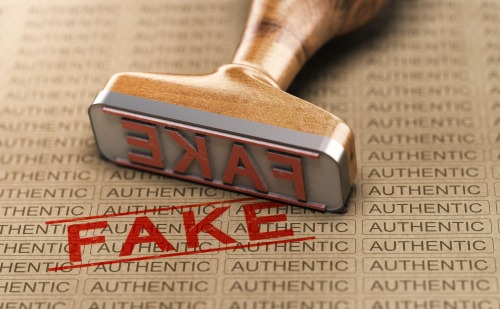
Since August 16, 2021, United States Customers and Border Protection (CBP) officers have reported seizing as many as five shipments of fake COVID-19 vaccination cards, amounting to 1,683 total forged cards and 2,034 equally counterfeit Pfizer inoculation stickers.
It’s a growing problem as the COVID-19 pandemic stretches on: CBP reports that it has seized thousands of counterfeit COVID-19 vaccination cards across the country, be it in Chicago, Memphis, Anchorage or Pittsburgh.
“Creating or buying a fake COVID-19 vaccination card is illegal, not to mention dangerous,” Cincinnati Port Director Richard Gillespie said. “Purchasing counterfeit cards supports criminals whose only concern is their bank account, not American security or the health of our citizens. Our officers know that counterfeiters will try to replicate anything to benefit themselves, with no thought to the innocent victims that may suffer from their actions. The men and women of CBP are trained and ready to shut down these scammers and protect our country.”
In the case of the recent seizures in Cincinnati, the cards displayed what seemed to be an official logo for the Centers for Disease Control and Prevention (CDC). However, misspellings and substandard printing alluded to the cards’ forged natures. Such findings are then coordinated with CBP’s Fraudulent Document Analysis Unit, Homeland Security Investigations and other federal partners in order to counter illegal activity.
The result, in this instance, was the discovery that the shipments of these cards had originated in China. They were being imported by private residences and apartments in Illinois, Maryland, Missouri, New York and Texas. There was not a medical organization among them.
The CBP noted that COVID-19 health fraud is a major concern right now, with fake vaccination record cards advertised on social media websites, as well as e-commerce platforms and blogs. Falsification of the official seal of a U.S. agency, like the CDC logo, could be a violation of federal law with penalties of up to five years in prison or a $5,000 fine. A website has been set up to report such scams.




